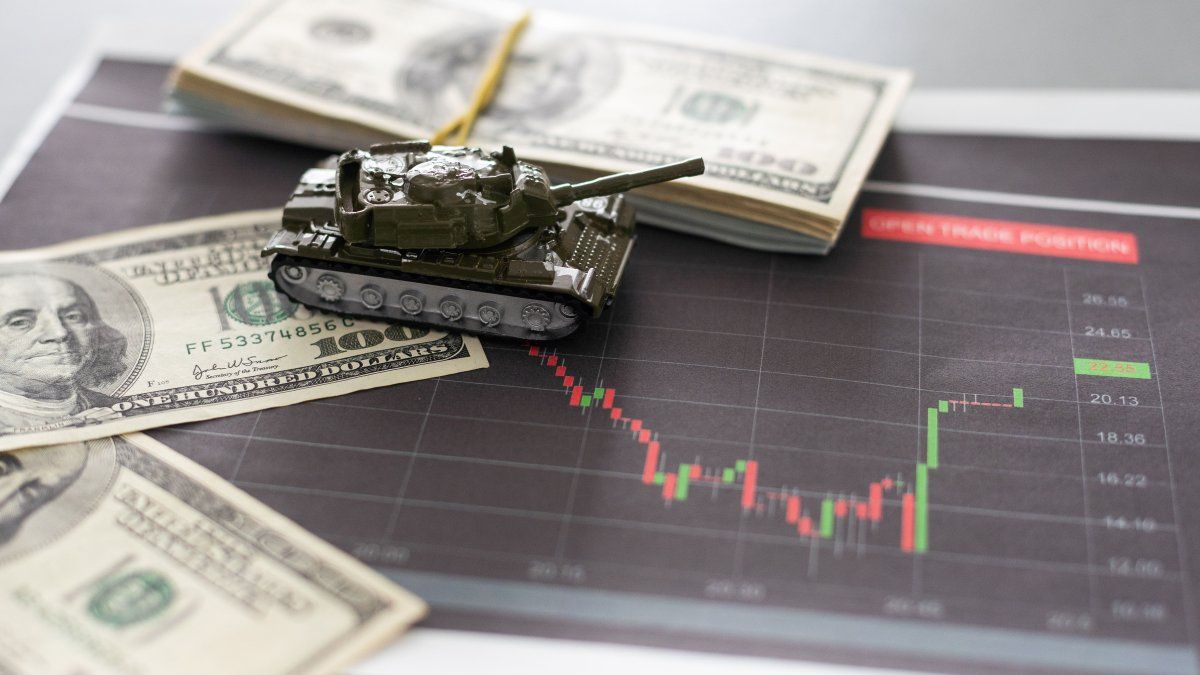War was never just a weapons confrontation. Also, there is a dispute of stories, a battle in discursive terms. There are many examples in history, about the relevance of the communication executed in times of war.
Each statement, every gesture, every silence of the leaders involved in the conflict between Iran, Iraq and United States It is being analyzed in real time by audiences around the world. And not only by governments, analysts or journalists. Also for companies, organizations and citizens who try to understand where the pieces move on a board that, at this point, seems fragile and dangerous.
In the center of this storm is communication. Because in times of crisis, what is said – and what is omitted – has both weight and the facts themselves. Governments not only administer military or diplomatic decisions; They manage perceptions. They seek support, calman or exacerbate, they mold public opinion inside and outside their borders. And they do it in a scenario where each word is amplified, deforms, translates, interpreted. There is no margin for improvisation: The story is part of the strategy.
If something makes us clear a conflict how this is that messages in times of crisis must be clear, consistent and timely. Confusing or contradictory statements, the positions that change from one day to the other, the explanations that do not close or do not arrive on time only manage to increase uncertainty. And uncertainty, we know, is the land where trust is eroded. In the corporate world, this applies in the same way. Organizations that face critical moments – whether it is a reputational crisis, a productive incident or a drastic change in the business – have the obligation to think about their messages with professional rigor, that is the first battle they must win.
A key lesson that leaves the communicational management of this conflict is the value of timing. The words arrive or do not arrive, and when the difference makes. Late messages can be perceived as lack of control, disinterest or inability to reaction. Hurd statements, as a sign of weakness or improvisation. The balance is fragile. And in this balance you play much more than the image: credibility is played, the most growth asset in the modern era.
Another revealing aspect is the symbolic weight of gestures. In recent days we saw how a message, a photo, a tone of voice in an official speech can calm or light the fire of public opinion. Words build a story, but gestures seal it, it is usually said. How many companies do this understand when they face a crisis? How many understand that the way in which a CEO stops in front of its people, how or not a responsibility assumes, how it communicates a difficult decision, is as decisive as the message itself?
In addition, this scenario exposes a phenomenon that organizations cannot ignore: crisis communication management is not an isolated act. It is a process that begins long before the critical moment and that demands preparation, consistency and internal alignment. No government, no leader, can pretend that a speech reactive confidence if what did for years contradicted those words. Companies, like states, need to sustain a credible story over time. Because at the time of truth, what will be worth not will be what is said, but what was done so that what is communicated, is really credible.
Therefore, when we look at what is happening today in the Middle East from the simple optics of strategic communication allowing us to make an analog bridge, jumping the traumatic and traumatic for humans of a war conflict, some questions arise to our work area: How do we prepare to communicate in our own moments of corporate crisis? What are we building today – in calm – that allows us to have a solid and reliable story when we have to cross the storm?
In a global environment where events precipitate, where overinformation generates more confusion than clarity, and where audiences are increasingly critical and less patients, communication in times of crisis is not an accessory. It is a central management tool. For both states and companies. What we are seeing on the international stage is nothing other than a mirror: it reflects the power – and the risk – of the stories that are built under pressure. And he reminds us that, at the end of the day, trust is played in the words, gestures and decisions we choose to make (or not take).
Strategic communication consultant.
Source: Ambito
David William is a talented author who has made a name for himself in the world of writing. He is a professional author who writes on a wide range of topics, from general interest to opinion news. David is currently working as a writer at 24 hours worlds where he brings his unique perspective and in-depth research to his articles, making them both informative and engaging.




